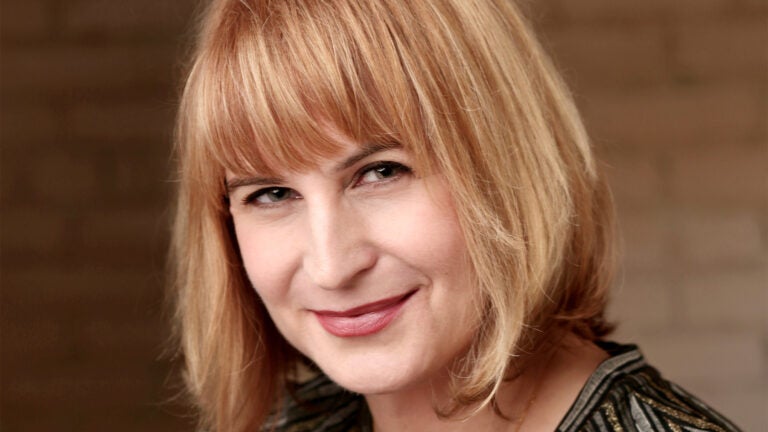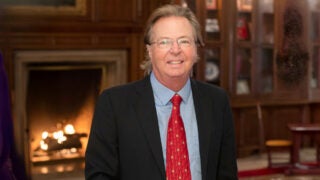
Uncertainty casts a shadow on 2022 Summit of the Americas
As the summit gets underway in L.A., USC’s Gerardo Munck discusses its potential, the state of Latin American democracy and trade, and the political challenges facing leaders in the Western Hemisphere.
Confusion reigned leading up to the ninth Summit of the Americas that convenes in Los Angeles today.
President Joe Biden will take part, but uncertainty over which heads of state will attend could limit opportunities for coordination on key issues affecting Latin America and the United States. The agenda centers on the summit’s theme, “Building a Sustainable, Resilient, and Equitable Future.”
USC Professor Gerardo Munck — an expert on comparative politics in Latin America — will moderate a panel discussion Friday about “The State of Democracy in Latin American and the World.” Munck, a professor of political science and international relations at the USC Dornsife College of Letters, Arts and Sciences, will discuss these issues with a group featuring two former heads of state: Leonel Fernández, former president of the Dominican Republic, and Laura Chinchilla, former president of Costa Rica. We spoke to him recently about the summit, his view on democracies in the Western Hemisphere and why this year’s summit may be limited in scope.
What is the state of democracy in Latin America and the Western hemisphere?
The positive is that if you compare Latin America to other developing regions, it’s the region that is most democratic. There was a big wave of democratization in the 1980s and ’90s where nearly all the countries but Cuba became democratic. You have Venezuela and Nicaragua joining Cuba as Spanish-speaking countries with dictatorships, but this is the best time for democracy in Latin America’s history. In the past, the region had democracies, but they didn’t endure. Now, we have democracies that have lasted 40 years or so.
However, people have a perception that these democracies are not working well, that politicians are corrupt, and sometimes even use money from drug cartels for electoral purposes. There’s a sense that the elites are distant from the people, leading to a sense of a crisis of representation.
Where have democracies fallen short of fulfilling their promises?
People expected that after several decades of democracy, something would be done to reduce economic inequality. Early in the century, some countries managed to reduce inequality. But this progress wasn’t sustained, and it led people to ask: “Is democracy working for me?” It’s the same issue we’re facing here in the United States, but in Latin America it is accompanied by another factor: a tremendous level of violence. A statistic I use in my classes shows that since 2000, roughly 2.4 million people have been killed in Latin America. These murders are committed by drug cartels, gangs, common criminals, and state agents. Latin America is the most violent region in the world. People expect things from democracy — basic things like security — and democracies have failed to deliver what citizens want.
How do these democracies compare to those in the United States and Western Europe?
An area where Latin America has shown growth is the inclusion of women in politics. Nearly every country in the region has gender quotas, and these quotas have worked. The [average] percentage of women in the lower chambers of congress is slightly over 30%, which puts it in line with Western Europe and ahead of the United States. In the United States, 28% of the members of the [House of Representatives] in 2022 are women, but we were close to 20% very recently. Seven Latin American countries have elected female presidents. Countries that are more culturally conservative than the United States have made steps to improve the representation of women. This is a very positive trend.
One major topic surrounding the 2022 Summit of the Americas is that numerous heads of state are wavering on their commitment to attend. Mexican President Andrés Manuel López Obrador threatened to stay home unless Cuba, Nicaragua and Venezuela were included. Why is the United States declining to invite these countries to the summit?
The host country has the authority to pick or invite which leaders and countries to invite to the summit. The United States is totally entitled … not to invite the heads of state of Venezuela, Nicaragua and Cuba [Nicolás Maduro, Daniel Ortega and Miguel Díaz-Canel].
This has been an issue at the last several summits. On the left and right of the political spectrum, Latin American leaders have argued that all leaders should be invited.
When Cuban President Raúl Castro was invited to the summit in Panama in 2015, we witnessed the historic meeting of Raúl Castro and U.S. President Barack Obama.
What are the potential consequences of not having all countries represented at the Summit of the Americas?
The United States is doing the right thing in sending a signal that dictators should be criticized. The question is whether President Biden is weakening the United States’ standing if his decision [not to invite those leaders] causes President López Obrador of Mexico not to attend the summit. The United States could have pursued [the option] to invite all leaders from Latin America and then foster a discussion about how to better protect democracy in Latin America and the United States. This option would have been preferable.
What could result from the summit?
Summits usually generate some energy going forward about things of collective interest in the hemisphere. During the first summit in 1994, for example, President Bill Clinton and the other presidents and prime ministers of the hemisphere agreed to a pathbreaking plan to develop a Free Trade Area of the Americas. NAFTA [the North American Free Trade Agreement] had been negotiated with Mexico and Canada and went into effect in January 1994. A plan was developed to apply that model to foster greater economic integration in the Americas. It was a hugely ambitious, 10-year project, and it eventually failed – there was pushback from leaders such as [Venezuelan] President Hugo Chávez.
Another more successful initiative occurred at the 2001 summit in Peru, [where] the Inter-American Democratic Charter was approved. I do not expect anything as ambitious coming out of the 2022 summit in Los Angeles. I think this will be a missed opportunity.



